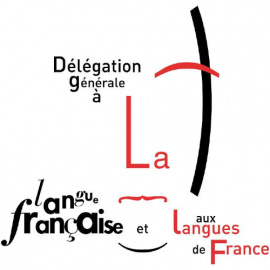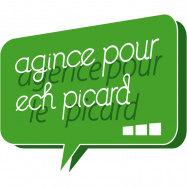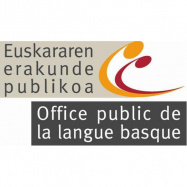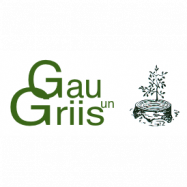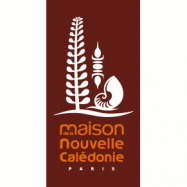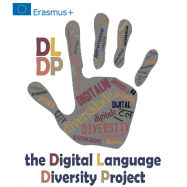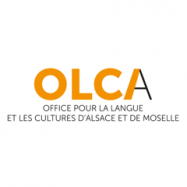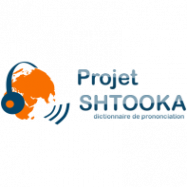LinguaLibre
LinguaLibre:Om
Revision as of 08:06, 4 November 2020 by Jon Harald Søby (talk | contribs) (Created page with "For å endre sidene på nettstedet er det bare å logge inn og trykke «rediger». For å legge til flere sider er prosessen på to steg: skriv inn tittelen på siden du øns...")
Lingua Libre er et prosjekt fra Wikimédia France med mål om å bygge et flerspråklig audiovisuelt korpus under fri lisens for å:
- utvide kunnskap om og på forskjellige språk på en audiovisuell måte på nettet, på Wikimedia-prosjekter og utenfor;
- støtte utviklingen av språkfelleskap online – spesielt for minoritetsspråk, regionale språk og tegnspråk – for å kunne hjelpe samfunnene å få tilgang til informasjon online og sikre levedyktigheten til disse samfunnene.
Hvordan kan jeg bidra?
Du kan bruke Lingua Libre ved å utforske og gjenbruke innspillinger, bidra til korpuset ved å spille inn ord, eller forbedre selve nettstedet i samarbeid med nettsamfunnet.
Fanen «Record Wizard» gjør det mulig å spille inn korte lydfiler (på ett ord eller én setning) som kategoriseres og publiseres på Wikimedia Commons fra en datamaskin eller smarttelefon. For å gjøre dette må du logge inn eller opprette en brukerkonto. Brukerveilederen er tilgjengelig på hjelpesiden.
For å endre sidene på nettstedet er det bare å logge inn og trykke «rediger». For å legge til flere sider er prosessen på to steg: skriv inn tittelen på siden du ønsker å opprette i søkefeltet, med prefikset «LinguaLibre:». En beskjed vil da dukke opp som ber deg opprette siden. Sjekk med nettsamfunnet først før du gjør større endringer.
Why participate?
Lingua Libre comes from the observation of several lacks on Wikimedia projects and on the web in general:
- Lack of diversity: While the web is in theory open to everyone, its content is far from representing all languages proportionally. More than 50% of websites are in English; only 301 of the world's 7000+ languages have a free encyclopedia [1], with a content that is inferior in quality and quantity to those of more endowed languages such as Wikipedia in English[1],[2]. In addition, these websites host content that broadly reflects and meets Western standards and needs through the medium of the written word, which explains and helps to perpetuate their lack of linguistic diversity.
- Lack of orality: Although languages are essentially spoken (only 4,000 of the world's 7,000 languages have a writing system)[4], knowledge sharing and communication via new information and communication technologies (NICTs) is mainly done in writing, particularly on the web, despite the rich multimedia format it allows. This mediation of the oral through the written word raises many barriers to contribution, such as the use of Unicode characters, the culture of the written word, the orthographic standardisation of the language or the literacy rate of the community.
- These lacks of diversity and orality limit the ability of Internet users to communicate and contribute online to various web platforms where they cannot find content and communities sharing their language. Among the regional minority languages that are oral or signed, they threaten in particular the poorly endowed ones, many of which are currently in danger of extinction and for whom inclusion on the web is a major challenge and opportunity.
- Indeed, of the 7000 languages in existence today, it is estimated that only 2500 will survive to the next century and only 250 (less than 5%!) will make their digital ascent — i.e. be used regularly for communication purposes in the digital space by native speakers who are comfortable on the web — a factor which is yet essential for their vitality[5]. Current initiatives by linguists and activists to document and share data, resources and content online in the languages to be preserved do not directly contribute to the development of a digitally-ascendant linguistic community of Internet users, and thus remain limited in their impact.
- Lingua Libre aims to make up for this lack of support by placing itself at the service of linguistic communities wishing to insert and promote their language into the digital space by exploring alternative means of communication to the written word, in the hope that this will free up online communication in a growing number of languages. This objective favours by its very nature regional minority languages that are poorly endowed in terms of oral or signed language, but also benefits more endowed languages that wish to highlight their oral and visual aspects. To fulfil its mission, Lingua Libre offers an online solution for mass recording, leading to the publication of a collaborative multilingual audiovisual corpus under free licence, whose vocation is information through consultation, and revitalisation by triggering the contribution of new language communities on Lingua Libre and then outside.


